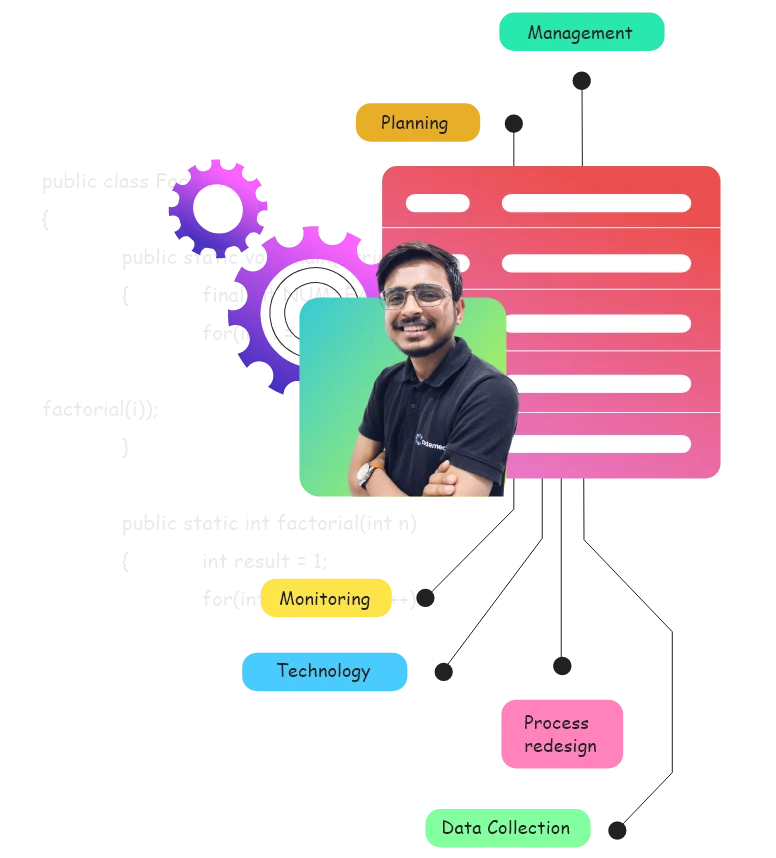
Digitalization process
The digitalization process, also known as process digitalization or digitalization process, refers to the transformation of analog or manual processes into digital formats. It involves the adoption of digital technologies, tools, and systems to streamline and automate various business operations, workflows, and activities.
At Codemech the digitalization process includes
Assessment
Organizations assess their existing processes to identify areas that can benefit from digitalization. We evaluate the feasibility, potential benefits, and challenges associated with digitalizing specific processes.
Planning
A detailed plan is developed to outline the goals, objectives, and timeline for the digitalization process. This involves determining the desired outcomes, selecting appropriate digital tools and technologies, and allocating the necessary resources.
Data collection and integration
Relevant data from analog or manual sources is collected and integrated into digital systems. This may involve scanning physical documents, capturing data from forms, or transferring data from legacy systems to digital platforms.
Process redesign
Existing processes are redesigned to leverage digital technologies effectively. This step involves optimizing workflows, eliminating redundant or manual steps, and reimagining processes to take advantage of automation, data analytics, and other digital capabilities.
Digital Implementation
Digital tools, software applications, and systems are implemented to support the digitalized processes. This may include the deployment of enterprise resource planning (ERP) systems, customer relationship management (CRM) software, project management tools, and other digital solutions.
Automation and optimization
Digitalized processes are automated to reduce manual effort, increase efficiency, and improve accuracy. Robotic Process Automation (RPA), artificial intelligence (AI), machine learning (ML), and other technologies are employed to automate repetitive tasks and enable real-time data analysis.
Training and change management
Employees are trained in using the new digital tools and systems. Change management strategies are implemented to ensure smooth adoption and acceptance of the digitalized processes throughout the organization.
Monitoring and continuous improvement
Once digitalization is implemented, processes are continuously monitored and evaluated for performance. Feedback is collected from stakeholders, and improvements are made to optimize the digitalized processes further.
The benefits of the digitalization process include increased productivity, improved accuracy, faster turnaround times, enhanced data accessibility, better decision-making through data analytics, and the ability to adapt to changing market conditions. It enables organizations to stay competitive, improve customer experiences, and drive innovation in their operations.
Development Services
Frontend Development
Backend Development
Mobile Development
Cloud Development
Quality assurance
Words From Our Happy Clients
"Satisfaction is the Greatest Happiness"
We believe in quality output. Clients are our assets and we working hard to grow with them.
Brands
Trusted and Supported by many
Meet Our Clients





